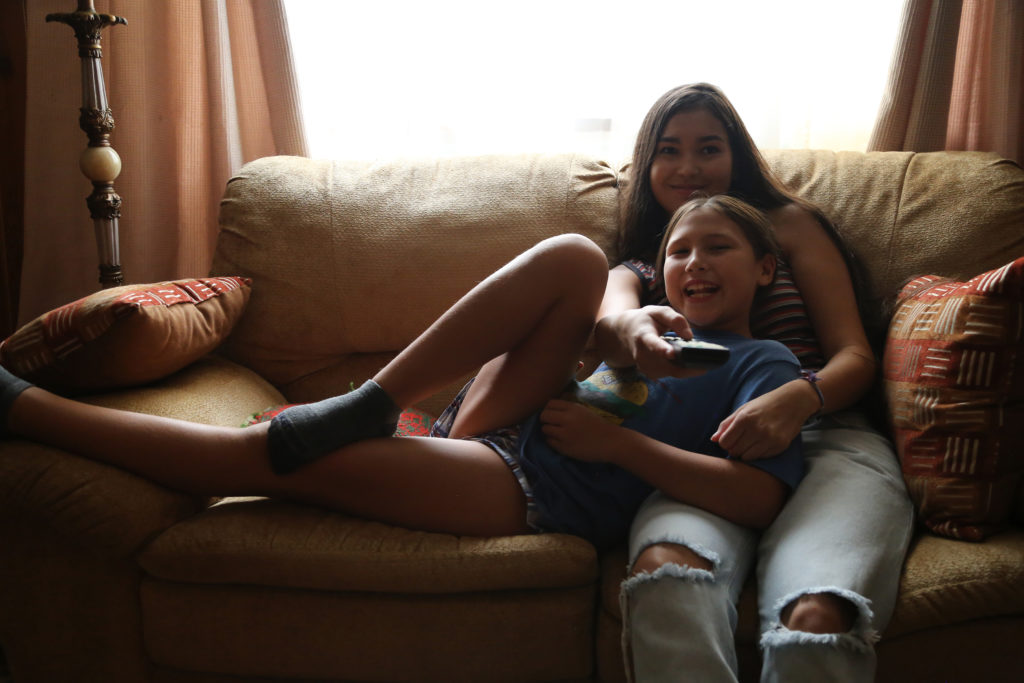
By Anne Brodie
Sonia Bonspille Boileau’s Rustic Oracle available on Demand Nov 17 is the story of an indigenous teenager who goes missing on her reservation. The tragic poignancy of the event and aftermath is all too familiar. Indigenous women and girls have disappeared in Canada at an alarming rate over the past forty years. Rustic Oracle follows the story through the eyes of her 8-year-old sister, whose innocence is shattered on that awful day. Heather and Ivy are played by McKenzie Deer Robinson and Lake Delisle and Carmen Moore plays their shattered mother. What She Said’ Anne Brodie spoke with filmmaker Sonia Bonspille Boileau.
Rustic Oracle is a powerful, urgent look at the impact of Murdered and Missing Indigenous Women and Girls through the prism of one small tight-knit family. It’s sad that mothers must address this with their young daughters and help them protect themselves.
It’s definitely heartbreaking, but as a mother, if you have a daughter you know that’s a conversation you’re going to have to have regardless of your background. Obviously, a person of colour has an added element to prepare your child for. It’s a harsh world towards women and harsher to indigenous and women of colour. It’s a conversation no mother wants to have but as mothers, we know how important it is to have it.
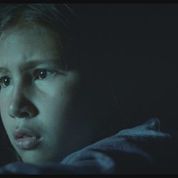
Eight-year-old Ivy (Lake Delisle) left behind when Heather (McKenzie Deer Robinson) disappears, and she begins to see the world as it is. Her face is so expressive and it’s all there.
It’s her spirit. It makes it palatable telling the story from a child’s perspective; it explores themes of childhood. They’re so resilient, seeking out the beauty in the darkest times and we explore that as well. It’s not negative and hard and harsh; I wanted it to have light and hope, having it told through a child’s eyes. When I met Lake who plays Ivy, I fell in love instantly. It was a weird combination of beautiful wisdom beyond her years, but her face is so innocent, those powerful eyes and innocent look. She played those emotions so well and has a natural way of playing and feeling those moments and her life force.
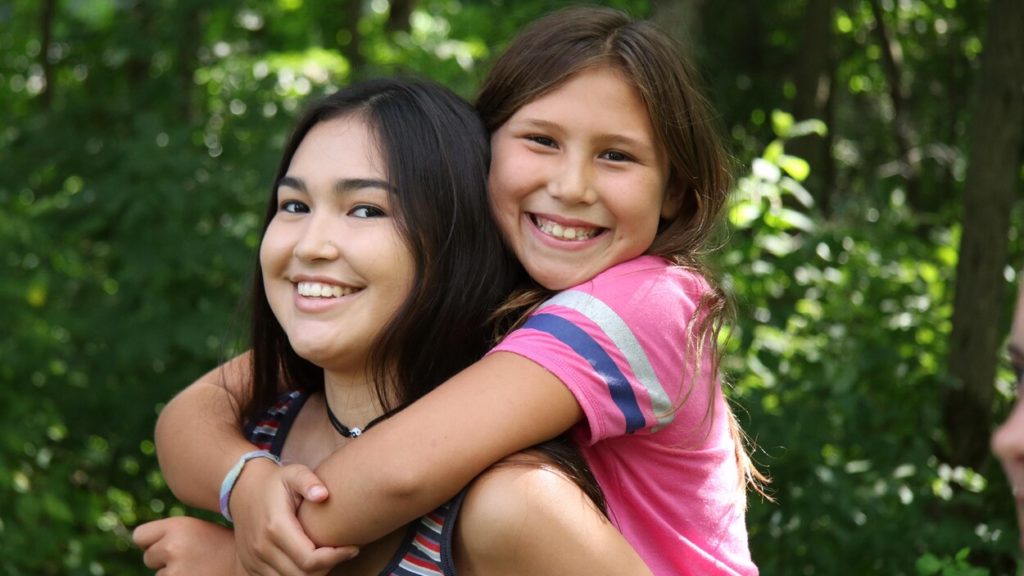
How did you protect her on the set?
That was one of my big preoccupations from the get-go. I met with her mum and made sure that she was comfortable with the subject and how deep we get. I needed her to set the boundaries as to how far to go how to tell the story so that she would understand. It helps that I have kids the same age. I know what they can and can’t cope with. I had Lake’s mum with me the entire shoot and I could see by the look in her eyes if I could push or stop a scene.
What inspired Rustic Oracle specifically? Was it the greater issue or a personal reason?
It is the preponderance of missing and murdered women in Canada in the Indigenous communities; we know how important this subject it. In recent years, it’s become a political subject with the National Inquiry. We’ve lost touch with the fact that we’re human beings I was really bothered by it as though it was a political discourse. There are mothers and fathers still looking or they found them dead and they don’t know what happened.
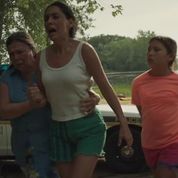
My partner comes from a small community two hours north of Gatineau and in 2008. two teenagers went missing. I don’t personally know them, but he knew their names and the families. I saw what it did to the community and the indifference of the locals. It wasn’t news, there were no mentions, nothing. Not even knowing these families, I felt assaulted.
I was so mad at the general population for not caring, that was the fire in my belly. I needed to show people one day that these are human beings, and as families, we have a lot more in common. There is this huge gap between indigenous and nonindigenous, we are viewed as “the other”. They defend that way of thinking, that there must be a reason behind the numbers that only applies to them. They detach themselves, but these are loving families.
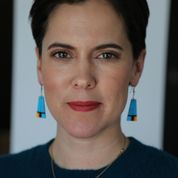
How do you know what is right for you?
I write and direct and honestly think it’s because I always focus on subjects that move me, that preoccupy me and shake me to the bottom of my core, and because of that I can do both writing and directing. I see projects as a whole; I won’t direct someone else’s material.
The film opens with a trigger warning and a number to call MMIWG for help, a great idea.
We did that out of respect for families that have gone through it. Making a film on this topic, there will be lots of people who want to see it. I’m making the film; I want to provide help. I don’t want people to leave with open wounds. I want them to heal. The subject matter is tough but to have the face of little Mackenzie Deer Robinson as she works through this dark period with a smile and wide eyes is healing.